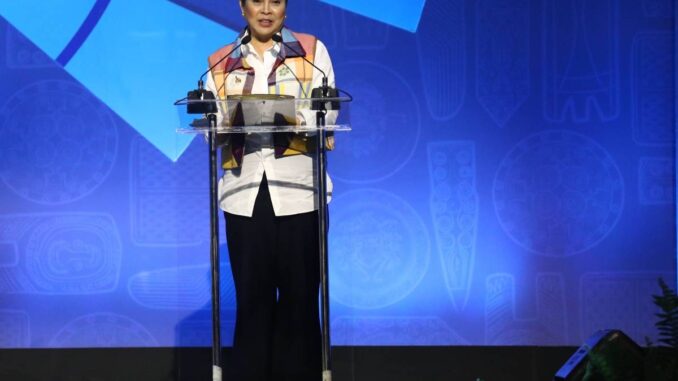
MANILA, Philippines — Senator Loren Legarda raised the importance of developing Philippine Studies to help the world better understand the country’s role on the global stage.
The senator said Philippine Studies has become “more than an academic discipline.” Through her efforts, 25 universities worldwide have received funding to establish or enhance their respective Philippine Studies Program (PSP).
“It is a global platform for Filipino voices and perspectives to be heard and acknowledged, contributing to the larger human conversation,” Legarda said in her speech at the opening ceremony of “Dialogo: Philippine Studies Goes Global” in Manila.
“From groundbreaking research and community projects to collaborative dialogues on pressing global issues, these universities have become vital centers where values, ideas, and cultures intersect,” she said. “Let us create a strong national brand that indulges the world in the richness of our cultural heritage, the depth of our intellectual discourse, and the dynamism of our creative spirit.”
The Philippine Studies Program at the University of Alicante was launched on Nov. 21, marking a significant milestone in strengthening academic and cultural ties between the Philippines and Spain, the Department of Foreign Affairs said.
The ceremonial signing of the donation agreement between the Philippine Consulate General in Barcelona and the University of Alicante was held at the university’s museum, coinciding with the conclusion of the “Hijos del Sur” exhibition, which featured Philippine textiles and photography by artist María Mari Murga.
The PSP at the University of Alicante is the first of its kind under the jurisdiction of the Philippine Consulate General in Barcelona, which covers Catalonia, Aragon, the Balearic Islands, Valencian Community and Principality of Andorra.
The PSP is envisioned to offer a customized degree program and will be one of the few academic offerings in Western Europe dedicated to Philippine studies.
It is poised to “become a platform for broader academic and cultural exchanges between the Philippines and Spain, fostering global engagement with Filipino culture, history, and its evolving identity in the modern world,” the embassy said.
It aims to foster a nuanced understanding of the Philippines, one that considers its rich historical connections with Spain while offering Spanish students a deeper perspective on the Philippines of today.
“By engaging with Filipino culture, history, and its shared Hispanic heritage, the program seeks to build bridges that connect the past with contemporary realities,” the embassy said.





Be the first to comment